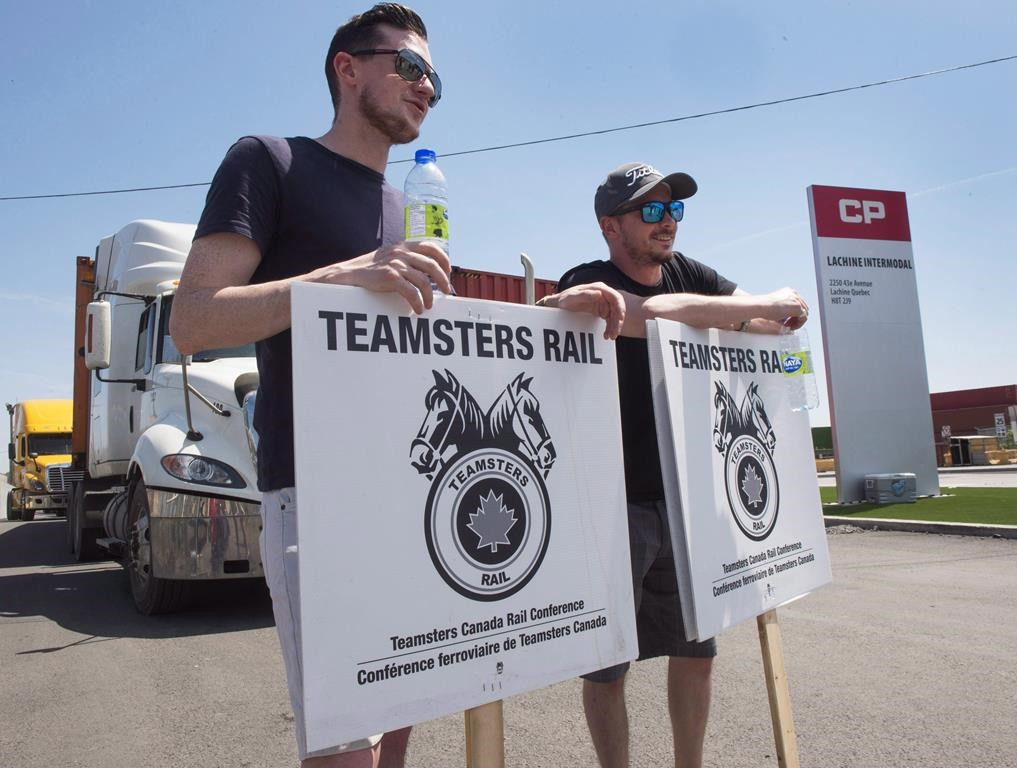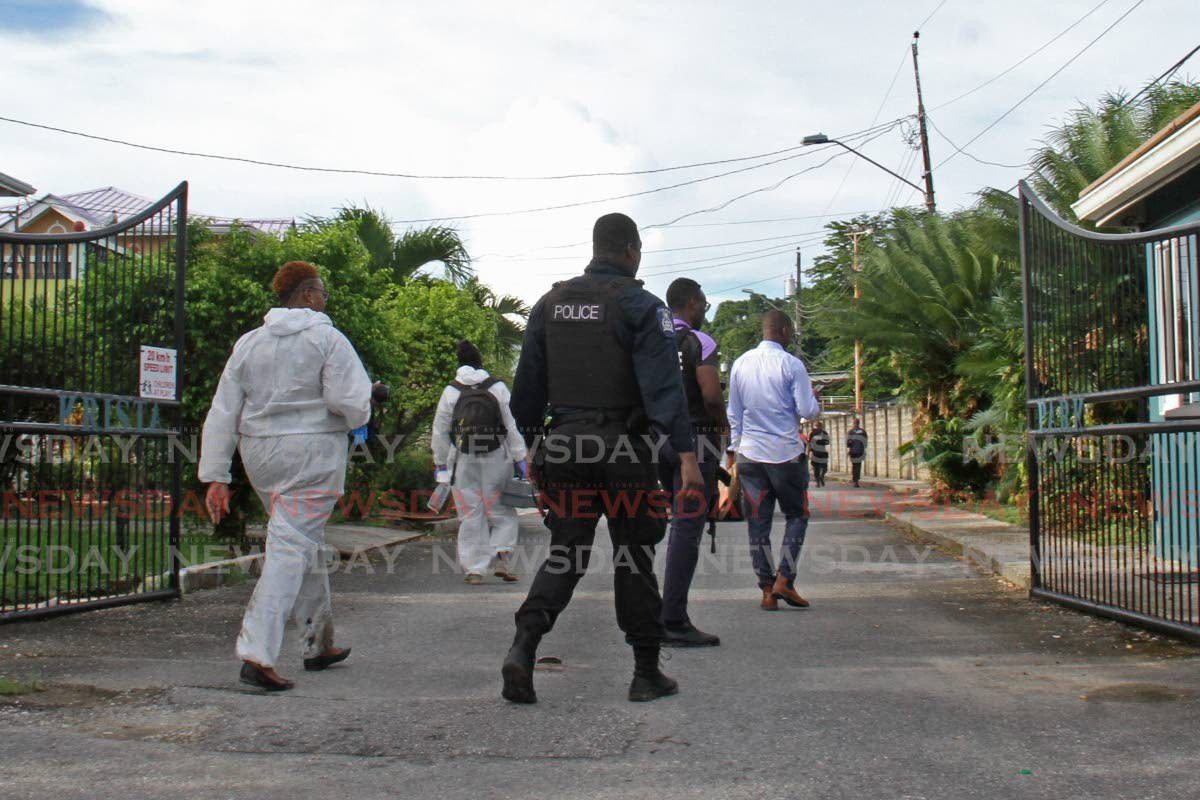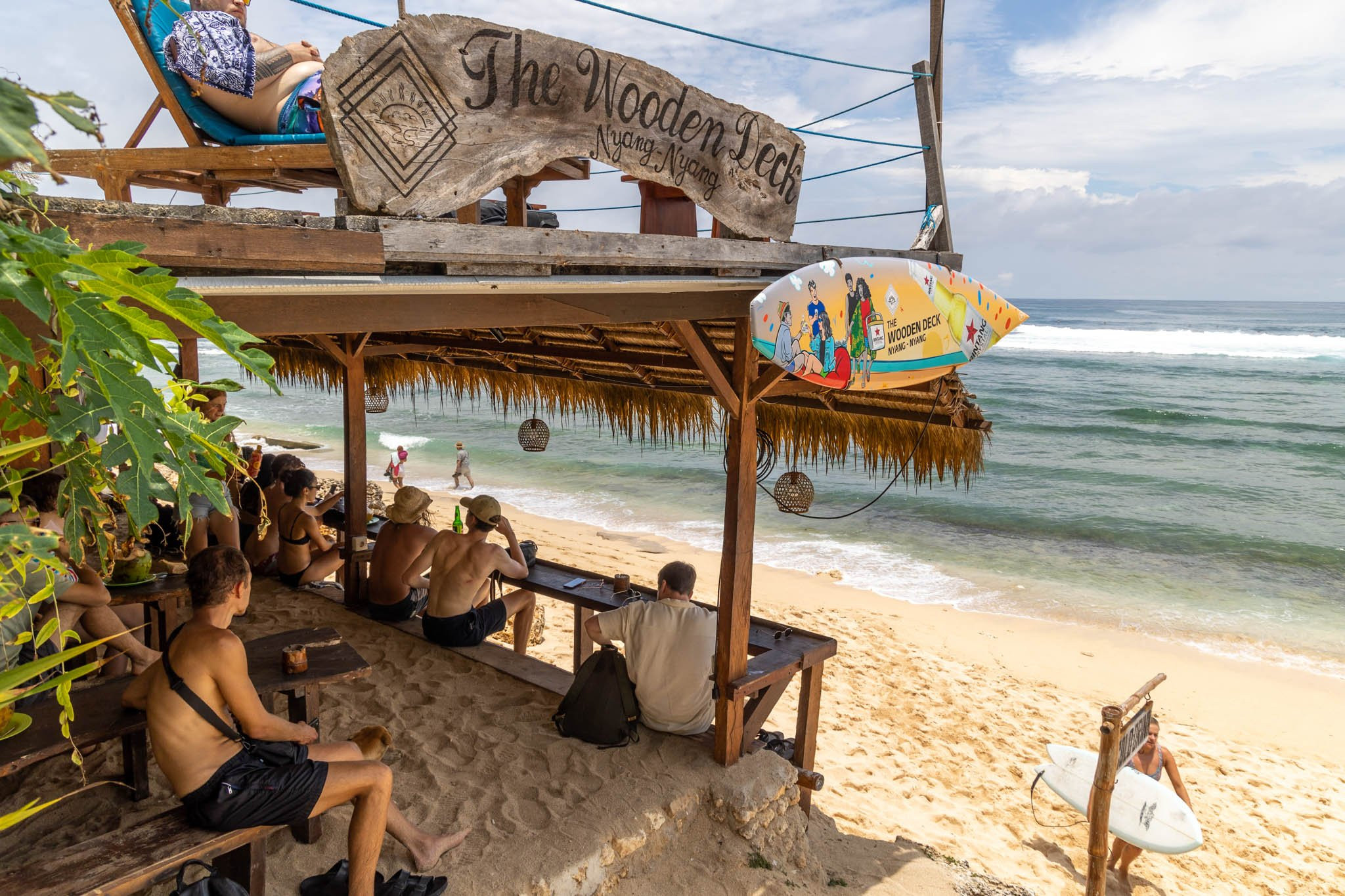Late on Thursday afternoon, Labour Minister Steven MacKinnon said the federal government will ask the Canada Industrial Relations Board to end the lockout at the country’s two biggest rail companies. MacKinnon said he’s asking the board to order a return to work and to impose binding arbitration.
He’s also asked the board to order the railways to resume operations under the terms of the current collective agreements until new deals are in place.
MacKinnon says the collective bargaining process is ultimately up to the companies and the Teamsters Canada Rail Conference union, but the lockout is affecting all Canadians.
After months of increasingly bitter negotiations, shipments at Canadian National Railway Co. and Canadian Pacific Kansas City Ltd. ground to a halt Wednesday night as talks broke off. CN and CPKC then locked out 9,300 engineers, conductors and yard workers after the parties failed to agree on a new contract before the midnight deadline.
Both railways have called for binding arbitration, but the union rejected those calls.
The two companies have never had a labour dispute at the same time before. A shutdown was estimated to prevent $1 billion in trade from moving every day.
Shortly after the feds announced they were stepping in, Saskatchewan Premier Scott Moe said on X — formerly known as Twitter — that the Canadian government “took the appropriate action, imposing binding arbitration on all parties and extending the current collective agreements to end the rail stoppage and ensure our Canadian products are moving to market again.”
The Saskatchewan government had on Thursday continued to stress the importance of a resolution to the dispute.
The federal government last week had refused to step in repeating its frequent stance that labor issues are best resolved through negotiations. Industrial leaders were pushing for the government to become more directly involved.
MacKinnon said while the dispute was between the union and railroads, the effects and impacts would be felt by all Canadians. He invoked the Canada Labour Code saying it was in the interest of “secure industrial peace and delivery.” He directed the Canadian Industrial Relations Board to become directly involved again reviewing the case and imposing final binding arbitration.
CN withdrew its lockout on Thursday evening and said operations would begin to resume on Friday. Teamsters were reporting for work, but the restart is sporadic and expected to take into the weekend to complete. CPKC was waiting for an official order from the Board before ending the lockout. The Minister said he wanted operations to resume “forthwith,” while admitting it might take a few days.
Teamsters Canada Rail Conference (TCRC), the union representing workers at Canadian National Rail, issued a strike notice to CN on Friday.
Workers will be on strike at 10 am ET on Monday, the union said.
The strike notice came after CN said in a statement that they were ending the lockout, in response to federal government’s decision to impose binding arbitration in the ongoing labour dispute.
“By sidestepping the collective bargaining process and ordering binding arbitration, the federal government has undermined the foundation on which labour unions work to improve wages and working conditions for all Canadians. Bargaining is also the primary way our union fights for rail safety—all considerations that outweigh short-term economic concerns,” said TCRC President Paul Boucher said in a statement.
The statement said the CIRB is yet to make a final ruling on whether it would force binding arbitration or end any work stoppage.
In its statement on Thursday, CN said, “As CN awaits the formal order from the Canada Industrial Relations Board (CIRB), the Company is making this decision to expedite the recovery of the economy.”
He said he has also directed the Canada Industrial Relations Board to extend the term of the current collective agreement until a deal is reached, and to order a return to work.
François Laporte, national president of Teamsters Canada, said Thursday the union was speaking to its legal advisors and considering its next steps.
“We believe that the Supreme Court decision regarding our right to strike is a constitutional right. And we believe that the application of Article 107 (of the Canada Labour Code) is not valid. We are looking at our options regarding that situation,” he told reporters in Calgary on Friday.
Laporte said the union was caught off guard by MacKinnon’s announcement of binding arbitration.
“Two weeks ago he said, well, no (binding) arbitration and no back-to-work (legislation),” he said.
Laporte said they will continue to oppose arbitration by a third party.
“The best way to have a contract is at the bargaining table,” he said.
CPKC said it was unable to resume service because the union “refused to discuss any resumption of service, and instead indicated that they wish to make submissions to challenge the constitutionality of the Minister’s direction.”
“While the Minister directed that the CIRB proceed expeditiously, any decision by the CIRB on the resumption of service will be delayed. CPKC remains prepared to resume service as soon as it is ordered to do so by the CIRB,” a statement read.
Laporte said rail workers are not going to abandon the picket lines just yet.
“We are here and we are going to stay here,” he said.
The Canadian Chamber of Commerce said it was “disappointed” in the union’s decision to challenge the binding arbitration order.
“This action will prolong the damage to our economy and jeopardize the wellbeing and livelihoods of Canadians, including union and non-union workers across multiple industries,” Perrin Beatty, president and CEO of the Canadian Chamber of Commerce, said in a statement
Dennis Darby, president and CEO of Canadian Manufacturers and Exporters, welcomed the binding arbitration order but said it would be a while before the trains ran again.
“The wind down of rail services over the last several days culminating in the full stoppage this morning has inflicted significant supply chain and operational challenges for manufacturers across the country – issues that will take days if not weeks to resolve,” he said.
However, he said it was better than a prolonged shutdown.
“A prolonged stoppage would have imposed enormous costs on Canadian business and workers,” he said.
“For the good of Canada’s food, economic, and national security, we are calling on all parties to abide by yesterday’s directives and to work with, not against, the CIRB to resume railway service,” the group said.
For every day that the stoppage continues, the group said farmers will continue to suffer heavy losses.
“Grain farmers will continue to lose $50 million a day with the continuance of a total shutdown of our national railways. The time is now to get Canada’s railways back on track,” they said in a statement.
Speaking to Global News last week, TCRC spokesperson Christopher Monette said the negotiations were about more than just money.
“The main issues now have to do with fatigue, rest, scheduling and forced relocation. The companies want to try to make it seem that our members are all exceedingly well-paid and spoiled. But the reality now is that these are billion-dollar corporations, and our members are giving over 80 hours a week of their lives to these companies,” he said.
The email you need for the day’s top news stories from Canada and around the world.
The email you need for the day’s top news stories from Canada and around the world.

















